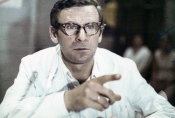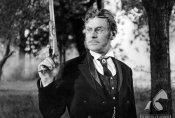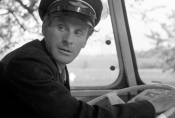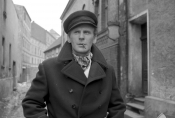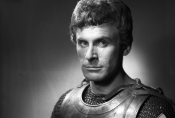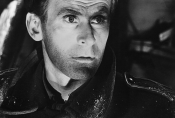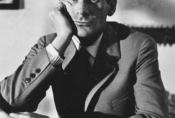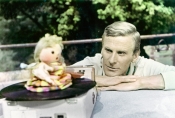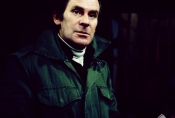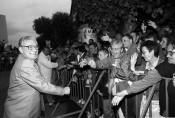Wiesław Gołas
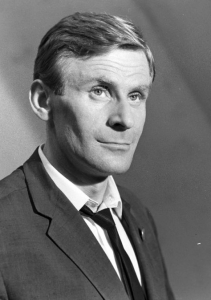
Excellent and extremely versatile theatre and television actor and cabaret performer.
He was born on October 9, 1930 in Kielce. A graduate of the Acting Department of the State Higher School of Theatre in Warsaw (1954). After graduation, he joined the Dolnośląski Theatre in Wrocław (1954-1955) and subsequently worked in theatres in Warsaw: Dramatyczny (1955-1985) and Polski (1985-1992).
He made his screen debut with a minor role of a German policeman in Pokolenie/Generation (1954) by Andrzej Wajda. He won popularity and critical acclaim for the title role in Ogniomistrz Kaleń (1961) by Ewa and Czesław Petelski, based on the novel by Jan Gerhard. He cemented his position with the title role in the television series Kapitan Sowa na tropie [Captain Sowa on the trail] by Stanisław Bareja (1965), one of the first big hits in the history of Polish television.
Gołas was cast in very diverse roles, both main and minor: in Jak być kochaną/How to Be Loved (1962) by Wojciech Jerzy Has, he played the German soldier who rapes Felicja; in Dom bez okien [A house without windows] (1962) by Stanisław Jędryka, he was a circus mime, in Chudy i inni/Skinny and Others (1966) by Henryk Kluba, he was the eponymous workman employed in the construction of a large water dam. “Sometimes I drew more satisfaction from small roles, where I could create vivid and colourful characters. These included, for example, Franciszek in Gra/The Game (1968) by Jerzy Kawalerowicz or the baker in Dziura w ziemi/A Hole in the Ground (1970) by Andrzej Kondratiuk,”the actor confessed in 1974.
He was usually cast in comedies, for example as Robert Wolański, a Polish émigré from the antipodes in Żona dla Australijczyka/Wife for an Australian (1963) by Stanisław Bareja, Stefan Waldek in Dzięcioł/Woodpecker (1970) by Jerzy Gruza, or Ingnatek in Szabla od Komendanta/Sabre from the Commander (1995) by Jan Jakub Kolski.
“It seems to me that there is something of a childish naivety about the acting profession. We believe in what is not there. Moreover, we have to convince the audience that something that is not there actually exist,” he admits.
Jerzy Armata
Selected filmography
-
1960
BAD LUCK
reż. Andrzej Munk
-
1962
HOW TO BE LOVED
reż. Wojciech Jerzy Has
-
1970
HYDRO PUZZLE
reż. Andrzej Kondratiuk
